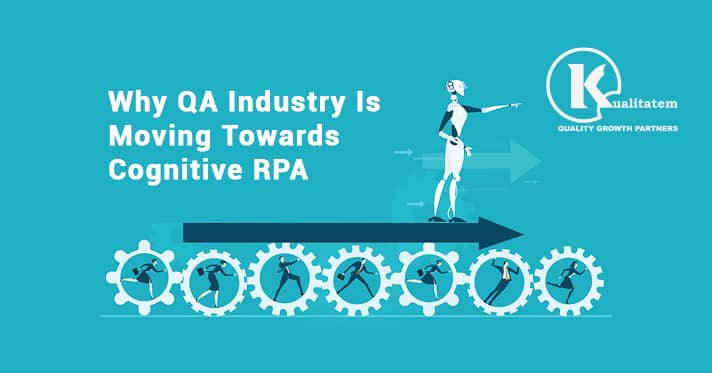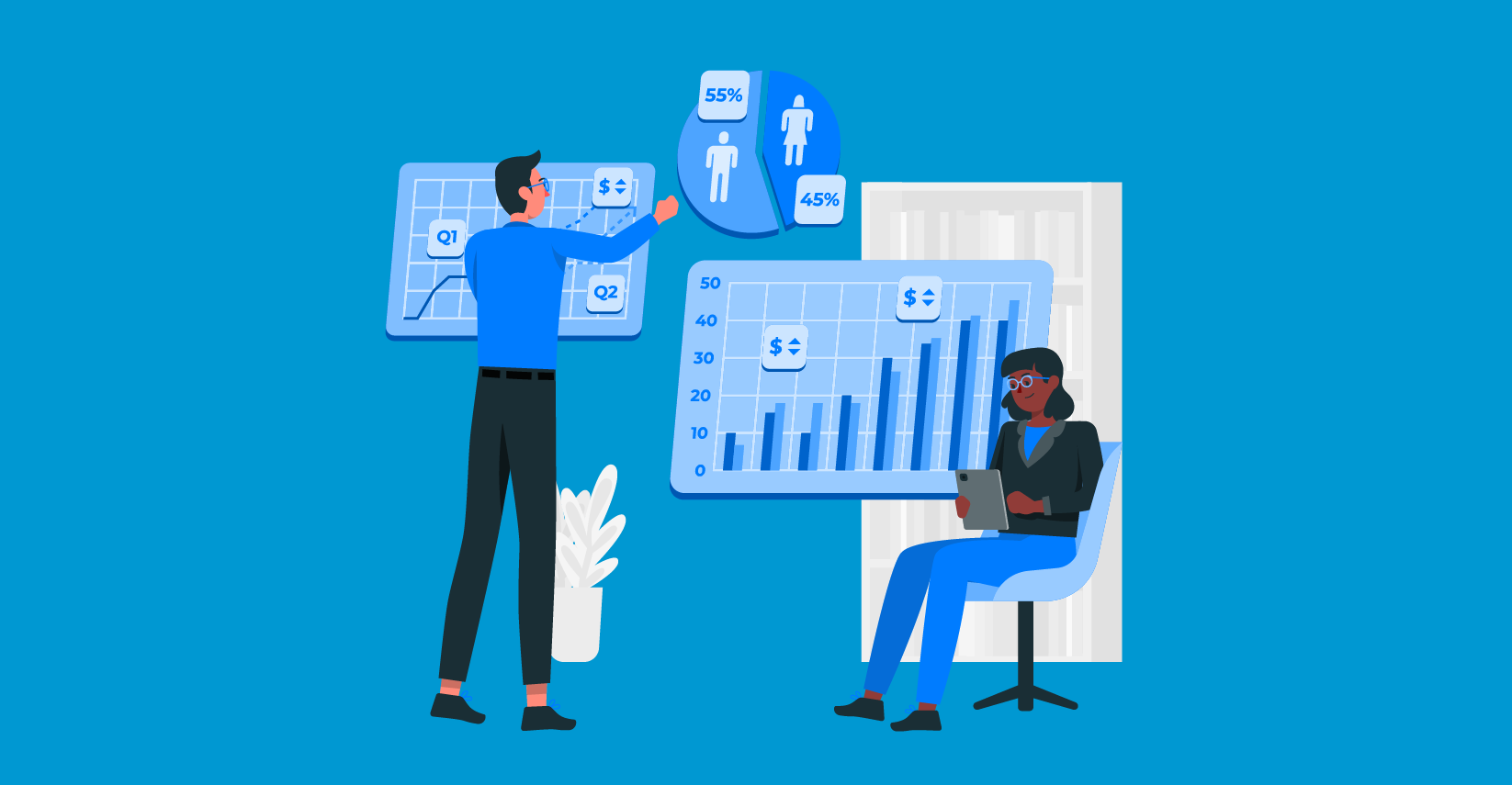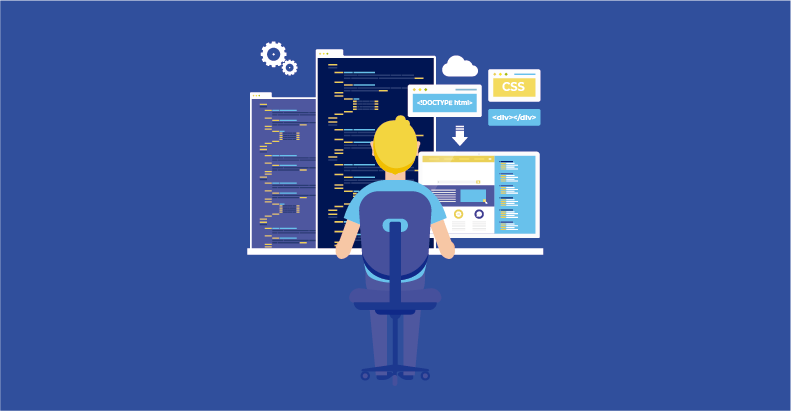Why QA Industry Is Moving Towards Cognitive RPA

- February 12, 2020
- HibaSulaiman
Automation is a revolutionary change in the IT industry and made manual work easier by automating repetitive tasks with low costs, increased reliability, and improved quality. Artificial Intelligence (AI), Machine Learning (ML) and Internet of Things (IoT) are driving towards digital transformation. When AI and ML are combined to automate manual tasks, this is where Robotic Process Automation (RPA) makes its way into the frame. It is a fascinating technology trend followed in the software testing industry, that can turn heads in the age of automation. RPA mimics the actions of testers and automates simple to complex rule-based processes. The automated tests can then be run by using software robots. RPA helps testers to complete routine QA tasks manually to optimize business processes. These are helpful in automating daily manual testing processes that are repetitive, time-consuming and rule-based. An automation testing company utilizes RPA to improve the productivity and efficiency of its QA teams.
Keeping in mind the countless benefits of automation, the digitally-growing world is looking for accurate, faster and precise solutions. Enterprises expected automation testing tools to optimize the pace and keep up with the increasing competition. Manual testers lag at precision and agility, which are two key features of robotic software that make it the perfect solution for getting repetitive mundane tasks in no time. They support QA teams in delivering significant outputs with low turnaround time. With increasing complexity in the processes, enterprises are looking for assistants to deliver products faster and with precision. Having said that, QA teams are motivated to use RPA tools that can perform actions with speed and accuracy. These tools mimic manual actions with 100% precision. Moreover, AI and ML-enabled technologies are paving a path for cognitive RPA platforms.
RPA Tools Go Beyond Automating Repetitive Tasks
Organizations that deploy RPA use traditional automation approaches that are limited to testing processes that use structured data. However, non-repetitive processes that use unstructured data require cognitive abilities to achieve success from automation efforts. RPA tools can simulate thought processes and adapt to changing business requirements by using ML and AI capabilities. RPA tools are currently being leveraged in customer service processing, data migration and IT support in industries such as healthcare, manufacturing, and insurance. Some of the QA tasks that can be automated using RPA include login credential verification, automation test data creation, test management process automation, and automated issue tracking.
Introducing CRPA
Cognitive Robotic Process Automation (CRPA) is a business-driven relationship with AI and robotic software. This hybrid tool performs more complex tasks than just simple data entries. Organizations are now adopting these cognitive solutions and the first step is utilizing the true potential of hyperautomation. As for 2020, Gartner states hyperautomation as the top technology trend. Hyperautomation combines the AI and ML technologies to produce tools as RPA and intelligent Business Process Management Suite (iBPMS).
So what exactly is cognitive RPA? It is an automation tool that addresses the deep complexities of tasks and adapts to the varying requirements. A CRPA tool does not require any human intervention in carrying out tedious testing activities with the ability to sort structured and unstructured data. Besides offering automation, speed, and accuracy, cognitive RPA tools drive analytical decisions. It includes features like Natural Language Processing (NLP), ML and Optical Character Recognition (OCR). The legacy RPA tools fail at performing actions beyond its programmed scope, but cognitive RPA tools leverage ML to adapt and improve with the evolving needs.
CRPA is an approach that combines technology, processes, and people to provide efficient solutions and improved results. Robotic automation utilizes ML capabilities to analyze, understand and adapt as per changing requirements. CRPA tools are more sophisticated and independent in software testing and automation testing companies are discovering all possibilities with cognitive RPA tools.
Without any doubt, RPA tools eliminate the need for humans to work like robots and perform repetitive tasks. RPA gives a break to manual testers from time-consuming activities so that they can use their time in improving the business-driven efficiency of these processes. Cognitive RPA is one step ahead with AI and ML technologies. Manual testers were supposed to think and execute, but now the robotic software is integrated with AI capabilities to shift both planning and execution to the tool. Thus, the entire activity moves from manual to CRPA tools. However, it does not affect the importance of manual testers, they are still important for organizations to grow and sustain.
CRPA is accountable for repetitive and time-consuming activities but these will require some understanding by the tools for successful execution. These activities are data-driven and rely on CRPA. These tools are finding practical applications in various industries including customer services through chatbots, processing financial transactions for insurance claims and comparing documents for discrepancies. CRPA can perform activities like:
- Data entry tasks for enterprise planning systems
- Reading and replying emails based on the context
- Switching between multiple screens to perform tasks as billings and payments
- Verifying and validating user credentials for financial transactions
Future of CRPA
Due to limited functionality, RPA was not a complete automation solution. According to various research, only 20% of companies are able to adapt and utilize RPA effectively. And the remaining adopters either faced a lot of hurdles or could not transform completely. Although CPRA promises significant benefits in the future, it requires some tricks in proper adoption and successful implementation. Here, testing plays a crucial role. CRPA testing tools will ensure that the technology is implemented without disrupting current processes. These tools will be widely used by industries like finance, retail, healthcare, telecommunication, manufacturing, etc. By leveraging RPA, an automation testing company can help organizations in improving their time to market while increasing precision and accuracy.











